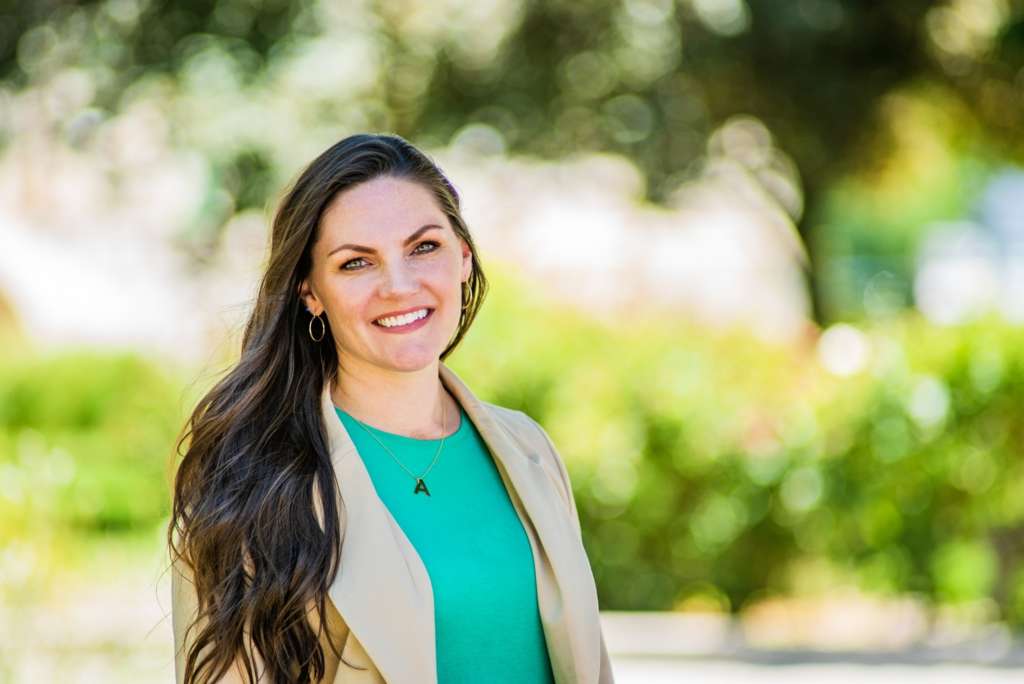The race for Colorado’s 3rd Congressional District (CD3), which includes most of the state’s mountainous Western Slope, looks dramatically different with last week’s sudden exit of U.S. Rep. Lauren Boebert (R-CO), but one thing remains the same no matter who’s running in 2024.
From the high-end hotels, homes and ski slopes of Aspen to the manufacturing, mining, drilling and agriculture of Grand Junction, the Western Slope runs on both longtime Latino labor and new immigrants from Mexico and other Latin American countries. And while Republicans seeking Boebert’s seat do so in Donald Trump’s ever-darker shadow on the topic, Democrats are striking a far more pragmatic tone that better reflects the demographic reality of the district.
While CD3 is predominantly Anglo (about 70%, according to U.S. Census data) and leans 9 percentage points Republican, nearly 25% of its residents identify as Latino or Hispanic. Some resort counties like Eagle, which is partially in CD3, are more than 30% Latino or Hispanic.

“There is a border conversation, and then there’s the immigration population of those people that are already here and how do we further get them integrated into the economy because they’re already here, they’re already involved in our communities,” CD3 Democratic frontrunner Adam Frisch of Aspen said in a phone interview. “They’re an important part of our communities, economic and noneconomic.”
Former President Trump, the GOP presidential frontrunner who’s the grandson of German immigrants, said last month immigrants are “poisoning the blood of our country,” and later promised to recall soldiers serving overseas to “clean up” the country and secure the border. He’s vowed, according to the New York Times, “to round up undocumented people already in the United States … and detain them in sprawling camps while they wait to be expelled.”
Frisch, the former Aspen City Council member who lost to Boebert by just 546 votes in 2022, acknowledges more needs to be done on the nation’s southern border with Mexico.
“We need safe and secure borders,” Frisch said. “This administration has done a horrible job about that. There is a way to have a safe and secure border and honor the words on the Statue of Liberty. We can have a humane border, and it can also be safe and secure. That should not be that hard to do. We need to figure out a way to reduce the demand of people coming over. We need more resources going in there to process those that are trying to follow the laws of the land.”
Frisch, who faces a likely Democratic primary in June, calls immigration an economic imperative.
“The economy, let alone the country, needs more legal immigration,” Frisch said. “I’ve talked to some of the most conservative business owners in our district, and ranchers need workers, farmers need workers, the construction industry needs workers, the resort communities need workers. And then our district needs people from a cultural standpoint and from a diversity standpoint, not just from an economic standpoint.”

Boebert, a consistent ally of Trump on immigration who previously pushed the white nationalist great replacement theory, is taking her act to CD4 on the state’s even more conservative Eastern Plains. But former Fremont County state lawmaker and unsuccessful gubernatorial candidate Ron Hanks is now running to keep CD3 out of the hands of RINOs (Republican in Name Only). Hanks echoes Trump on border security and has called for finishing Trump’s border wall.
Grand Junction lawyer and former chairman of the Grand Junction Area Chamber of Commerce Jeff Hurd does not address immigration on his campaign website and, despite numerous emails and phone calls to his campaign, has thus far declined to answer questions on the topic. Carbondale businessman Russ Andrews, also seeking the GOP nomination in CD3, also has not answered emailed questions on immigration.
Grand Junction Mayor Anna Stout, who’s seeking the CD3 Democratic nomination over Frisch, says she is uniquely qualified to help lead in Congress on immigration and border issues given her two decades of spearheading Grand Junction’s sister city relationship with El Espino, El Salvador – a program born from her study-abroad curriculum at Colorado Mesa University.

Stout just saw the program celebrate its 19th year in September after first visiting El Espino with a CMU sociology class in the early 2000s and then returning to her hometown to urge the city council to adopt the sister-city program and help provide scholarships to students in El Salvador.
“That has given me real insight for the last 19 years into the root causes of our immigration situation here,” Stout said in a phone interview. “Less than 1% of the U.S. government’s budget goes to our diplomatic efforts, our state department, and then a fraction of that budget goes to our international development budget. The work that I’ve been doing in El Salvador for 19 years is the work of diplomacy.”
Stout, a translator and nonprofit organizer by trade, says only one scholarship recipient has been forced to come to the United States, and that was because his life was at risk from an El Salvadoran gang. The program has enabled others to stay and make their communities better.
“This is the policy area that I feel that I am the best suited to be making decisions and recommendations about, because I understand the reality from the source countries, and I’ve been doing work in a source country …,” Stout said. “I’m anti desperation immigration. Visiting the border does not give you a full picture of what is actually happening with our immigration system. So touting visits to the border is a joke. It’s political theater, really.”
Rather than grandstanding, Stout believes in “making this a three-pronged approach, which is securing the border, making sure that we’re staffing up our immigration system resources, especially our courts — more judges and court staff in general to process people fairly quickly – and the third prong is investing. It’s beefing up our international development budget, our USAID budget, so that we can focus resources in the countries that are source countries.”
Finally, Stout would like to see a complete reformation of the legal work visa system.
“The lowest hanging fruit in all of this are H-2A [temporary agriculture] and H-2B [temporary non-agriculture] visas,” Stout said. “That’s where we should be focusing. That’s a bipartisan place to operate from because that’s about industry, that’s about economics and resilient economies, employment, making sure that we have food security. Mountain towns definitely need it from the hospitality standpoint, and communities like mine need it from an agriculture standpoint.”
Recently appointed Vail Mayor Travis Coggin, a development consultant and part-time ski patroller who grew up in Vail from third grade on, praises the partnership between Colorado ski towns and Mexico – both from a visitation and labor standpoint.
“The national conversation couldn’t be further from reality here,” Coggin said in a recent interview. “The relationship in the Town of Vail, and valley-wide, and from Aspen to Vail to Steamboat, every resort community, it is the unwritten partnership of all partnerships, right? Mexico, Costa Rica, all of Latin America, wherever immigrants are coming from, this community shuts down without them working and being a part of our community.”
Alex Sánchez, president and CEO of the advocacy group Voces Unidas de las Montañas in Glenwood Springs, would like to see that relationship result in better housing opportunities for Latinos in prohibitively expensive resort communities. Sánchez last legislative session helped pass a law to hopefully improve water quality in mobile home parks where many Latino families live in crowded conditions.
“We want to make sure that these policymakers understand that they’ve been neglecting our community, that they have failed our community,” Sánchez said. “Undignified housing should not be the standard for Eagle, for Vail, for Avon, for Aspen, for Breckenridge, and so we need to find better housing options for working families like Latinos who happen to predominantly live in these mobile home park communities.”




